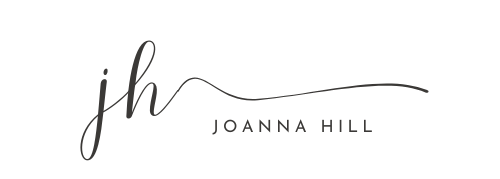Dynamic Decision Making
A decision making framework for personal and professional success
5 questions for making dynamic decisions with certainty, clarity and confidence
Decisions shape your Destiny.
Life’s biggest successes are so often the result of making life’s biggest decisions.
If our decisions shape our destiny, then making good decisions is one of the most important things you can do in life.
So how do you gain certainty, clarity, and confidence when faced with decisions that could have far-reaching ramifications?
The 5 Dynamic Decision Making questions form a decision-making framework that’s easy to understand, simple to use, and flexible enough to inform the decisions that will shape your destiny across your lifetime.
How does the Dynamic Decision-Making framework help?
Certainty
Certainty about what you’re going to do.
The Dynamic Decision Making framework helps you to move forward with certainty knowing exactly what it is that you are going to do. Uncertainty can sabotage the best decisions and plans. No decision is the worst decision you can make. Use the Dynamic Decision-Making framework to move forward with certainty.
Clarity
Clarity around why you’re going to do it.
The Dynamic Decision Making framework gives certainty about what you’re going to do and clarity around why you’re going to do it.
Lack of decision clarity leads to second-guessing your plans and regretting your actions. This Dynamic Decision Making gives certainty about the decisions you make so you can move forward without doubt and live without regret.
Confidence
Confidence to take action.
The Dynamic Decision Making framework gives the confidence that comes from certainty and clarity.
Moving forward knowing what you’re going to do and you know why you’re doing it gives confidence for what comes next.
How does the framework work?
The 5 Dynamic Decision-Making questions 5 questions are there for you to ask yourself when facing big decisions at work, in business, and in life.
It’s a framework, not a checklist.
What do I want to do?
Life has so many competing pressures. Making Dynamic Decisions requires tuning out the noise and starting with the obvious question.
What do you want to do?
Just because a question is obvious doesn’t mean it gets asked, or that it gets the weight it deserves.
When you make the decision that’s in front of you, what do you WANT to do? Not what you think you should do, what you always assumed you would do, what you’re being pressured to do, what you’ve been brought up to do or what everyone else is doing. What do you want to do?
Ask yourself what you really want. Listen to your gut and your heart. Go for a drive, a walk or do whatever you do to relax and think. Give yourself the time and space to identify what you really want. This isn’t about your family, your boss, or your upbringing. This is about you and your personal goals, dreams, and values.
Ask yourself what you want to do and be honest with your answer. This is your decision and it’s you that has to live with yourself and with the consequences after it is made. Think about the decision that works best for now and for the future. Think about the decision you can live with. Think about the person you will be proud of being after the decision is made.
Sometimes the most obvious question is the easiest place to start and the most obvious solution might be the best course of action.
What would (insert name here) do?
The network works, and you can see further standing on the shoulders of giants.
Do you know someone who has made a similar decision to the one you are making in a way that you would love to make it with results you would want to achieve?
If you can, talk to that person. This is especially valuable if you are making decisions about work, career, study, or business.
If you can’t talk to them, draw on your knowledge of them and their decision-making process to outline a likely course of action that they might take.
Having friends, colleagues or connections with people whose goals and values align with yours is so incredibly valuable.
Big action is easier to take if you can see it so you know you can be it.
Informed action is easier to take if you can draw on the experience of others who have paved the way.
What would I tell a friend to do?
You are intelligent, articulate, and experienced. You are also smart brave and strong. The advice you would give a friend is probably worth taking for yourself.
Have the hypothetical conversation with yourself that you would have with a friend who was making the same decision, facing the same situation, or asking the same question. As you have this hypothetical conversation, make suggestions, offer feedback, and give advice.
The advice you would give a friend in the same situation you are facing may be the only advice you need.
What’s the worst that could happen?
Articulate for yourself the worst thing that could happen if you move forward with the decision you are making.
If you have a solid business plan, you don’t overextend and the business you want to start doesn’t work, what is the worst-case scenario?
Defining your worst-case scenario helps you to:
- know your limits personally, professionally and financially
- understand the potential impact of your decision for the people you love
- make contingency plans you’re comfortable with (B, C, D etc)
- Invest in yourself so your worst case scenario is never untenable.
Defining your worst-case scenario is genuinely empowering because it gives you the confidence to shoot for your Plan A without fear.
After you’ve defined your worst-case scenario sit with the definition for a while. Imagine it happens. What does your life look like if the worst possible outcome of the decision you’re making eventuates? How does it feel?
The capacity to confidently make Dynamic Decisions that look high risk comes from identifying and understanding the worst that could happen and knowing you’re okay with it.
What would I do if I wasn’t afraid?
Sometimes fear is the only thing stopping you from taking action.
If you have asked all the other Dynamic Decision Making questions and you are still not sure what to do, this is probably the question you need to ask.
Fear is a useful hand break when a decision or course of action is risky, dangerous, or ill-advised.
But sometimes our fear works against us and getting over fear to achieve success can be really important.
If you know a course of action is sound and fear is the only thing stopping you from taking action, write this question on a piece of paper and stick it up on the mirror in your bathroom or the wall next to your computer monitor.
Know what you would do if you weren’t afraid, and then decide if you still want to do it.
Three Dynamic Decision Making things to remember
Now you know the questions, start using them as you find yourself facing decisions, big and small.
As you become familiar with using the framework, here are three things to remember:
- It’s a Dynamic Decision Making framework. Not a Checklist.
Some decisions will only need one question and you will know the answer straight away. Other decisions will take time and require all the questions.
- It’s not a race and there isn’t a timeframe.
Some decisions can be made quickly. Others take time. Making decisions isn’t a race, but it does need to happen. Use the Dynamic Decision-Making framework to give you certainty and clarity so you can move forward with confidence. No decision is the worst decision.
- You’ve got all the tools you need for success.
This Dynamic Decision-Making framework supports you to make decisions, but the power to make them is already within you. Use it.
You’ve got this.

FAQs
The list of decisions a decision making framework can help with is long:
- Starting, scaling or selling a business
- Starting a family
- Applying for a job or starting a career
- Moving city, state or country
- Deciding which college or university to apply for or which offer to take
- Picking a school for your children
What did I miss?
Hindsight is a beautiful thing.
But the reality is that we can only ever make any decision with the information that we have available at the time.
Do your due diligence so the information you have is as complete and comprehensive as possible, knowing that life always contains unknown unknowns which could impact what happens down the track.
When you have certainty, clarity and confidence surrounding the reasons for a decision you have made, you can live without regreat knowing that the process you went through to make the decision was sound and that you did the best you could with the information you had at the time.
Live and learn.
When you know better you can do better.
This decision making framework draws on your experience, your network and your goals, hopes and dreams to reach a decision that is underpinned by your passion and your purpose.
Whether you are starting, scaling or selling a business, through using this decision making framework alongside the financial and data crunching that drives informed business decision you can give yourself certainty, clarity and confidence to make the best decision for you, your business, your colleagues and employees and your life.
When the potential reward is directly in proportion to the risk you are willing to take, becoming familiar and comfortable using a decision making framework that works for you will give you the decision making confidence and skills to maximise your potential upside while minimising your risk.
Job changes and promotions are right up there with some of life’s biggest decisions.
The Dynamic Decision Making framework encourages you to access your network to give you certainty, clarity and confidence whatever stage of your career you are at.
Young adults are often required to make some of their biggest life decisions at a time when they feel least equipped to make them.
Common decisions young adults face include:
- What subjects will I study?
- What course will I take?
- What job will I apply for?
- Will I move city/state/country?
- Will I move in with or marry my partner?
- Will I buy a house?
Life is long and full of many opportunities, but decisions as a young adult can have a huge impact on long term life satisfaction and stability.
The Dynamic Decision Making framework can give young adults certainty, clarity and confidence just like they can help people who have been adulting for longer.
The network works, and you are intelligent, articulate and experienced. Sooner or later someone in your personal or professional network will ask your advice about a decision they are making.
Perhaps they are asking what you would do in their situation. That’s awesome, and you can tell them. You can also help them work through the other four questions.
The more familiar you become with this framework yourself the more you will find yourself naturally working the questions into conversations with your wider network.
This is a decision making framework, not a compulsory question list.
Think of it as a guide not a checklist.
Some questions will have more weight for some decisions and there might be times when one or more questions don’t seem relevant.
I have made some of my biggest life decisions by only asking myself what I would say to a friend facing the same circumstances. I knew my advice was good, so I took it and never regretted it.





